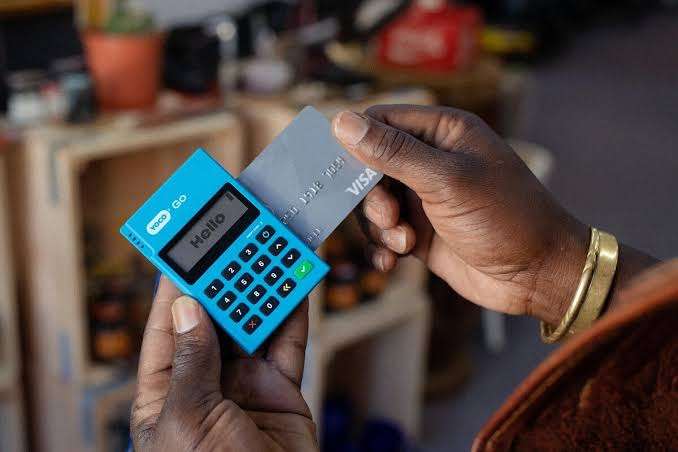As amall and medium-sized enterprises (SMEs) make up the backbone of Africa’s economy, retail-tech platforms have become increasingly important in helping them scale operations.
African retailers face a persistent mix of challenges, including unstable internet, inconsistent power, high data costs, and in response, a growing number of retail-tech platforms are building tools designed to address this.
In this article, Techparley ranks the top 10 retail-tech platforms empowering African SMEs, examining their innovations, market strategies, and competitive edges.
1. Lumi Business
Lumi Business is a Lagos-based startup redefining what it means to manage a retail business in Africa. Unlike many competitors, Lumi offers a full-stack business operating system that includes point-of-sale (POS), payments, inventory, CRM, loyalty, business banking, and real-time analytics.
What truly sets Lumi apart is its Offline Mode, a breakthrough feature that allows merchants to process transactions, issue receipts, and track stock even without internet access. Lumi’s all-in-one infrastructure, offline-first resilience, and scalable ecosystem make it a complete retail-tech platform on the continent today.
2. Yoco
Founded in South Africa, Yoco has become one of the most recognisable names in African fintech, helping small businesses accept digital payments with ease. Its intuitive setup and customer support have made it especially popular among small retailers, and entrepreneurs.
With features like business insights, customer tracking, and flexible working capital, Yoco is empowering entrepreneurs to run more efficient, data-driven businesses.
3. Bumpa
Bumpa helps merchants set up an online store in less than five minutes, with no coding required. With its mobile-first design, the platform allows businesses to upload products, link to Instagram or WhatsApp, and manage orders from their phone.
Targeted at informal merchants and side hustlers, Bumpa focuses on making digital commerce accessible, fast, and cheap. The company continues to grow its user base in Nigeria and lts strength lies in helping businesses engage directly with customers across social platforms.
4. Kazang
Kazang operates at the intersection of digital inclusion and last-mile commerce. Its POS terminals and mobile app solutions are tailored for micro-merchants and spaza shop owners across South Africa, Namibia, Zambia, and Botswana.
Kazang also enables merchants to accept card payments, conduct money transfers, and generate additional income through value-added services. By giving informal retailers access to essential digital utilities, Kazang is playing a vital role in closing the financial access gap for millions of underserved consumers.
5. Wasoko
Wasoko allows small shops to order inventory via mobile and get it delivered the same day—no need to close shop or visit the wholesaler. With operations in Kenya, Tanzania, and Rwanda, Wasoko is building a logistics backbone for informal retailers.
Its mobile ordering and real-time pricing tools improve restocking efficiency and reduce the traditional supply friction in retail distribution. While it doesn’t offer POS or payments, Wasoko’s impact on B2B logistics is unmatched in East Africa.
6. Selcom
Selcom has built a strong presence in Tanzania, offering agency banking, POS systems, and digital payments through a single platform. Its POS terminals are widely used by mobile money agents, retailers, and informal businesses.
Selcom’s strength is in financial infrastructure, serving as a bridge to mobile wallets, banks, and utilities. It’s an excellent solution for businesses that want to blend retail with financial services.
7. Kippa
Initially launched as a digital ledger for tracking sales and customer debts, Kippa has evolved into a broader business platform with payment integration, inventory tracking, and even business registration.
Kippa is particularly useful in Nigeria’s credit-heavy economy, where informal businesses often allow customers to buy now and pay later. Its intuitive debt tracking system gives business owners real-time insight into who owes what. It remains a powerful tool for merchants trying to formalise their operations one step at a time.
8. Shopstar
Based in Cape Town, Shopstar targets small retailers who want an easy way to launch and manage their online stores. The platform supports integrated payments, delivery management, and product catalogues.
Shopstar shines in ease of use, making it popular among retailers in South Africa. As e-commerce adoption grows across the continent, Shopstar is carving out a valuable niche in the creative economy.
9. Sabi
Sabi is building an ecosystem around product distribution and informal retail trade. The company focuses on helping entrepreneurs buy stock, access credit, and connect with suppliers in real time.
Sabi facilitates B2B commerce for market sellers, wholesalers, and shops. The company’s long-term value lies in its ability to link fragmented retail supply networks with fintech and logistics layers in Nigeria and beyond.
10. TradeDepot
Headquartered in Lagos, Nigeria, TradeDepot has established itself as one of Africa’s most critical infrastructure providers for B2B supply chain digitisation.
The platform provides retailers with a mobile and web-based ordering system where they can view real-time pricing, promotions, and availability from major brands. Orders are routed to the nearest depot or warehouse, ensuring faster last-mile delivery.
A Fragmented Landscape, A Unified Goal
The African retail landscape is undergoing a powerful transformation, led by tech-enabled startups that understand the complexities of operating in informal and under-connected markets.
While the market is still fragmented, these companies are rewriting the rules for how small businesses grow, compete, and survive across the continent.
The most successful platforms will be those that offer more than software, and deliver stability, transparency, and the ability to scale.





